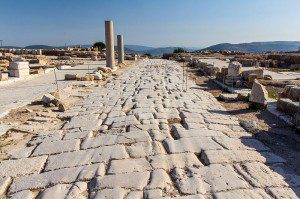
(Click to enlarge.)
Compare Mark 4:21; 9:49-50; Luke 8:16; 14:34-35; John 8:12
We sometimes seem to imagine that, eventually, everybody on the planet will accept the Gospel and join the true Church. And, sometimes, we’re derided by critics — especially of the cynical, apostate kind — because the Church has signally failed to convert most of the world.
But I can’t see that the prophecies have ever indicated that the Church would enroll every single man, woman, and child on earth — certainly short of the Second Coming and the Millennium, and, it seems, not even then:
And it came to pass that I looked and beheld the whore of all the earth, and she sat upon many waters; and she had dominion over all the earth, among all nations, kindreds, tongues, and people.
And it came to pass that I beheld the church of the Lamb of God, and its numbers were few, because of the wickedness and abominations of the whore who sat upon many waters; nevertheless, I beheld that the church of the Lamb, who were the saints of God, were also upon all the face of the earth; and their dominions upon the face of the earth were small, because of the wickedness of the great whore whom I saw. (1 Nephi 14:11-12)
When the Savior tells his followers that they’re “the salt of the earth,” that, too, seems to suggest that they won’t predominate in numbers. The imperial church of Constantine and the Middle Ages wasn’t in his view. A small amount of salt seasons a large dish. (Elsewhere, Jesus compares the Saints to leaven, where the same principle holds.) An entire dish of salt would be entirely unpalatable, so that can’t be what he had in mind.
On an unrelated note, the “city set on a hill” here might well be an allusion to the hilltop town of Sepphoris. It was a booming new area during Jesus’ lifetime, still being constructed, and was within walking distance of Nazareth. The town of Nazareth was too small, probably, to sustain a “builder” (tekton) like Joseph. (There’s little wood in Palestine; he almost certainly wasn’t a carpenter.) But Sepphoris offered plenty of employment, and the young Jesus may well have walked over with him and helped. References in the New Testament to corner stones and to building houses on rock rather than sand and so forth suggest some possible background with stonemasonry.










